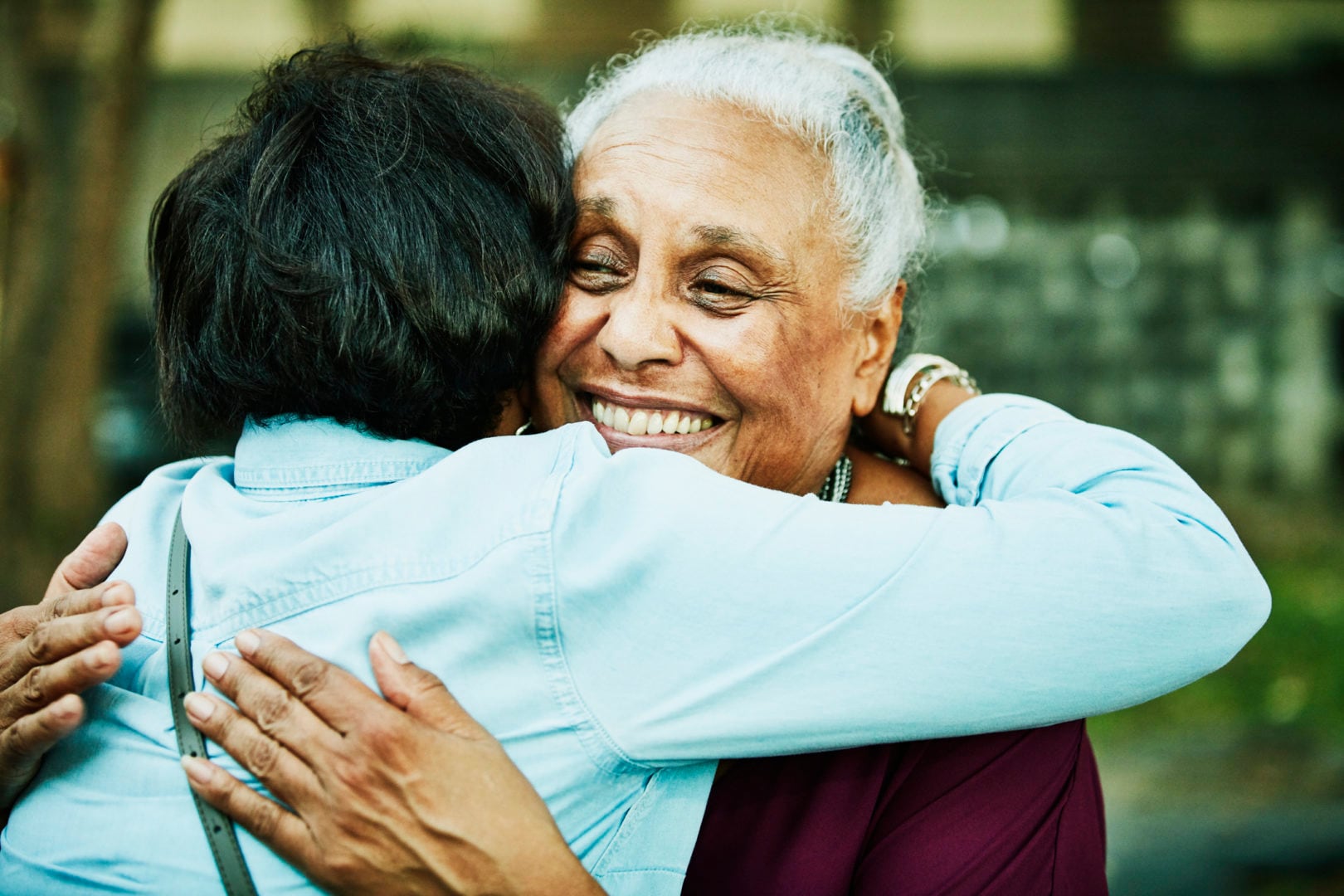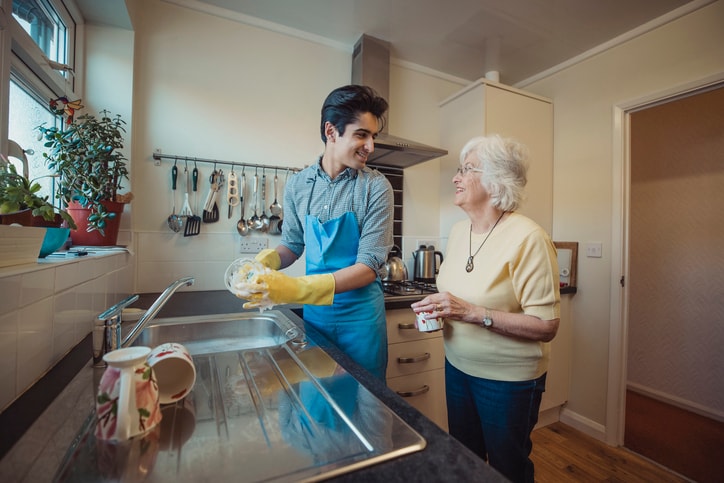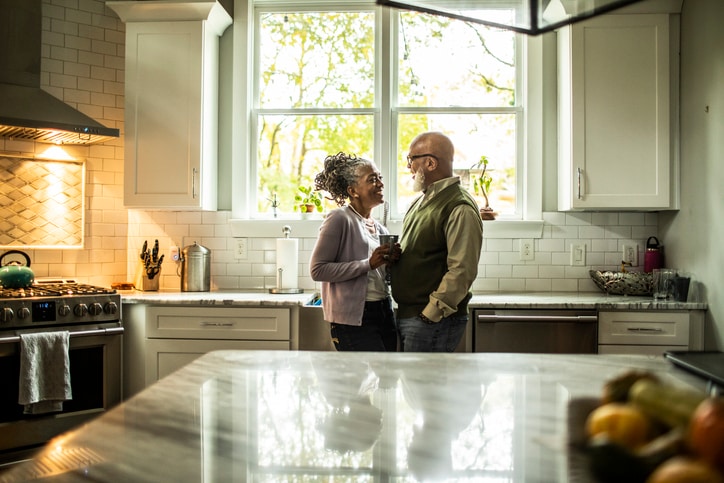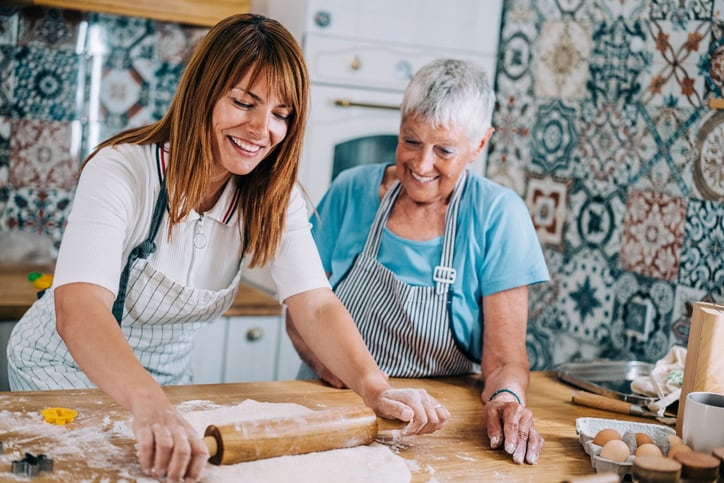Shortly after graduating from college, I moved in with my grandparents. My grandmother had been diagnosed with Alzheimer’s, and I was in need of housing. So I temporarily became one of her caregivers. My stint in caretaking only lasted a few months before I moved across the country to be with my fiance, but it was an experience I will never forget.
Going into it, I imagined myself helping with shopping and food prep and offering medication reminders, all of which I ended up doing. But what I didn’t fully anticipate was how emotionally and physically taxing being responsible for someone with Alzheimer’s would be — especially given how close I was to my grandmother. It was immensely painful to see someone who was a respected family figure no longer able to understand basic commands or to cloth herself.
If given the chance to care for my grandmother, would I do it again? Absolutely. But if I’d had a clearer picture of what to expect I likely would’ve been better prepared for the demands of the role I was taking on.
According to the community-based nonprofit Family Caregiver Alliance, 85 percent of caregivers are family members or loved ones. If you’re considering caring for a loved one, first assess your financial, emotional and physical circumstances. Here are five hard-learned truisms of caretaking to take into account before becoming a family caregiver.
Caregiving can come with lofty financial obligations
Chances are, caregiving will hit your monthly expenses. Many go into caregiving with the expectation that Medicare will cover their loved one’s expenses. Unfortunately, this is seldom the case. According to the AARP study, “Family Caregiving and Out-of-Pocket Costs: 2021 Report,” family caregivers spend an average of $7,242 on out-of-pocket costs related to caregiving, nearly 26 percent of their annual income.
“Even when caregivers hold on to employment outside of the home, they are faced with extraordinary additional expenses including medical, housing, equipment, transportation and in-home support care that are expenses above and beyond expectations of daily life,” says Mayra Mendez, Ph.D., LMFT, a licensed psychotherapist and program coordinator for intellectual and developmental disabilities and mental health services at Providence Saint John’s Child and Family Development Center in Santa Monica, California.
Caregiving will likely have an impact on your work
Full-time employment is non-negotiable for many caregivers to keep up with associated expenses. However, working outside of the home can lead to an increase in daily stress.
For some, the cost of finding care for loved ones during work hours exceeds take-home pay. There are direct expenses, like the cost of an aid, and there are indirect expenses, like peace of mind surrounding the safety of their loved one while away.
According to the Family Caregiver Alliance, 61% of employed caregivers have had work impacted by their caretaking responsibilities. Common ways this surfaces include going on a leave of absence, reducing work hours and quitting one’s job.
For others, their job may act as a buffer against feelings of resentment and assist in providing breaks from caregiving responsibilities.
“Employment may be necessary for financial survival, but it may also serve as a benefit for mental health survival by providing caregivers with a valuable link to community and social networks especially for caregivers that have professional careers and consider their work as fulfilling, self-nourishing and stimulating,” Mendez says.
You will have to prioritize self-care
Going from being responsible for only myself during college to taking care of my grandmother wasn’t easy. As a caretaker I had to help with everything; feeding her and getting her to the restroom were particularly difficult. While many of my friends were enjoying post-grad nightlife, I would stay home to keep an eye on my grandmother. I went from being a self-centered 21-year-old to something like a parent practically overnight.
After the first few weeks, I told my grandfather I needed to schedule time out of the house because I was overwhelmed. Helping my grandmother was more physically demanding than I expected — not to mention the emotional pain of seeing my grandmother grow into a shell of her former self. To make sure I was taking care of myself, I had to start spending more time outside of the house, and reminding myself to do simple things like eating enough and spending time on hobbies, like reading. Without that time away, I wouldn’t have been able to be fully present for my grandmother.
You might have to learn a new skill
In addition to activities of daily living, 46% of caregivers perform medical and nursing tasks. Most caregivers are also the head of decision making for patients’ medical care.
To be an effective caregiver, one must be well-versed in the needs and challenges of the loved one’s specific diagnosis. Developing the expertise and understanding required to be a caregiver can be challenging.
“The caregiver must learn about the condition including dietary needs, management of medication, medical therapy needs such as physical, occupational, speech, nutritional, respiratory, etc., that inform caregiving responsibilities to meet the needs of the loved one,” Mendez says.
That could mean taking courses or spending time reading books on their condition. According to the Family Caregiver Alliance, the average caregiver spends 13 hours per month researching disease-related information, scheduling appointments or handling financial matters.
I learned a lot about the changes occurring in my grandmother’s brain from my college psychology classes. That prepared me for the biological shifts, but not much else. To prepare me for what else to expect I turned to the Alzheimer’s Association and talked to other people I knew who had cared for someone with Alzheimer’s.
You will need support
The individual receiving care will require many medical and social resources — but so will the caregiver. Developing a support network is a critical part of succeeding as a caregiver. A therapist and social worker can help caregivers manage the day to day stress that accompanies caregiving, as well as reduce feelings of uncertainty.
“Connecting with organizations affiliated with the condition of the loved one, such as the Alzheimer’s Association, American Cancer Society, and local older adult organizations offer resources for caregivers as well as for the loved one,” Mendez says. Agencies that provide in-home care, transportation aides, visiting nurses, and faith-based organizations may offer caregivers counseling support options as well.”





